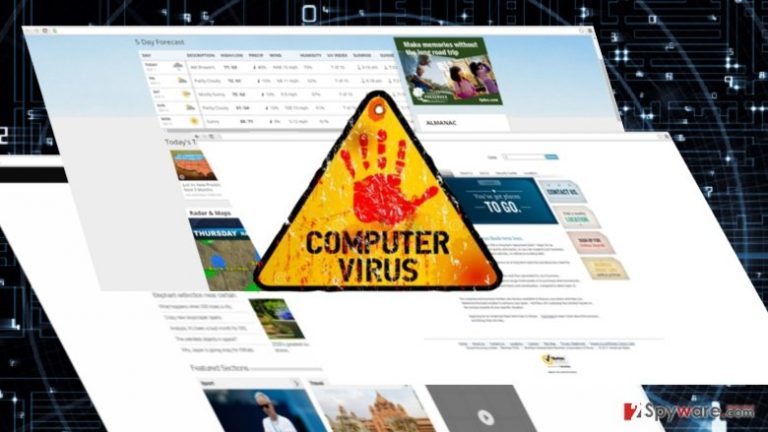No place to hide from ransomware viruses?
It is common knowledge that the Internet happens to be a place full of lurking cyber viruses which vary in their degree of complexity ad inflicted damage. While there are bigger chances to a get a virus by visiting a file sharing domain or a pornographic website, the recent events reveal that you are not protected from file-encrypting viruses, i.e. ransomware, while reading the news or checking a weather forecast. The latter cyber threats, which became a profitable tool for earning income, might wait for you even in a legitimate website.
This year has been rich in terms of the number of new ransomware viruses. While continuous updates on Cerber and CryptXXX emerge, new file-encrypting malware daily joins the cyber gang. Nonetheless, the majority of Internet users are not concerned about their security since most of them are careful not to open spam emails or visit suspicious websites – the preferred location of the ransomware. However, it is high time you became more careful surfing an ordinary web page. Recently, the official website of the Chinese restaurant, ‘Mr. Chow”, was hacked. As a result, customers, who regularly check the menu in this website, got the full attack of CrypMIC ransomware. The main reason for this assault seems to be the outdated CMS software which helps maintain the website. By placing the infected script, known as Darkleech, it activated a well-known Neutrino exploit kit.

This case is not the only one. A few years ago, independent.co.uk was hijacked as well. There were speculations that Syrian Electronic Army was behind this attack. Moreover, not only the malicious scripts are the primary tools for conducting ransomware assault. Recently, the hackers made use of exploiting Redis Servers for their ominous purposes.
Now you might be in the state of great alert and anxiety thinking over the possible ways to escape such menacing viruses. Fortunately, there are still weaknesses in these cyber attacks. If you own a website, update your CMS software such as WordPress, Joomla, or Drupal and servers. Acquiring a powerful anti-virus application is also a necessity as well. Lastly, supervising security applications and checking for updates is applicable for non-corporate users as well.

